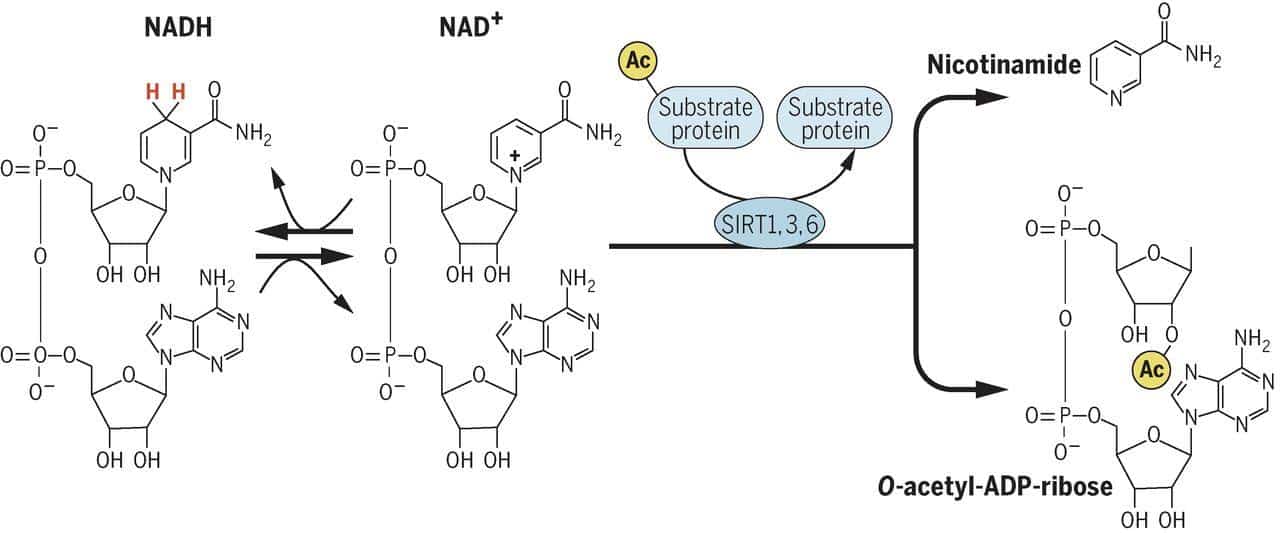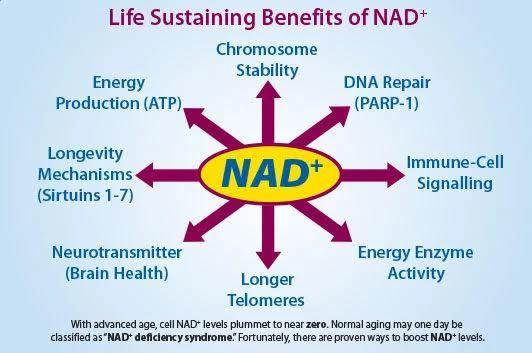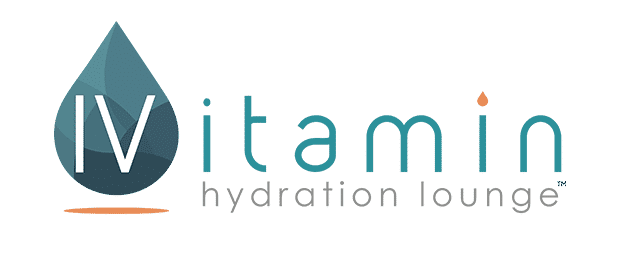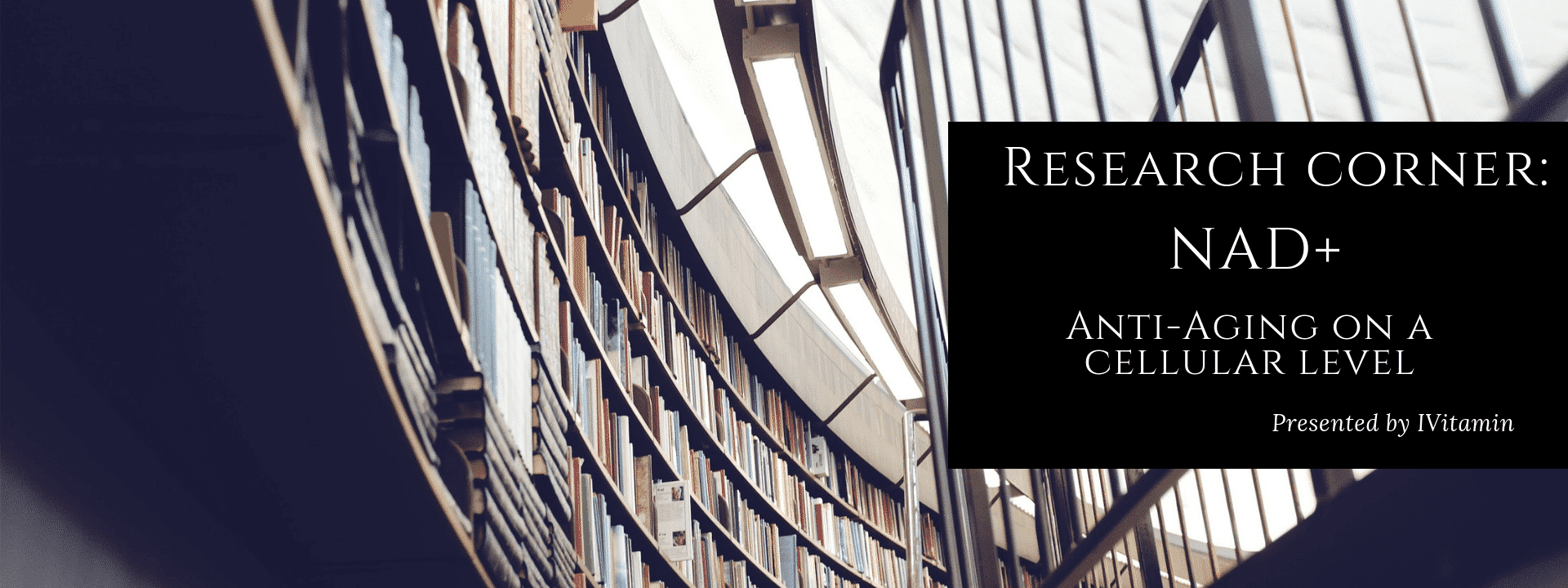Anti-Aging on a Cellular Level
I bought a magazine in the checkout line of HEB the other day (score one for product placement) and opened it to a glowing article about the benefits of Niacin that just so happened to be right next to an advertisement for a Niacin supplement. This of course annoyed the heck out of me and made me instantly suspicious. Are they writing articles about this because they have someone paying for advertising space? Is this a little publishing tit-for-tat at my expense? Or do they really support this supplement? The cynic in me never sleeps, y’all.
I decided to investigate. I recently earned my master’s degree and research is one of those things you learn to do in any state, including half-awake and clutching a latte that in reality is just a jug of espresso with a splash of milk. Grad school is not fun, y’all. But the importance of doing your research when confronted by something questionable is overwhelming and I encourage people to never take something at face value, especially where your health is concerned. And since I’m such a pal, I thought I’d do the work and publish my findings for our amazing readers.
Down the rabbit hole we go.
What is Niacin and how does it affect my body?

For starters, let’s talk about Niacin. Also known as vitamin B3, Niacin is a water-soluble B vitamin that is absorbed by the tissue in your body and converted into NAD+, a coenzyme that prompts a metabolic process that prevents cellular breakdown. According to the Mayo Clinic, studies involving mice show that a decline in the levels of NAD+ result in the familiar signs of aging including a loss of, “muscle tone, exercise capacity, glucose tolerance, and heart function”. In addition, an ongoing research project by the Mayo Clinic concerning pancreatic cancer cells and NAD+ asserts that “a decrease in cellular NAD+ levels leads to metabolic collapse and cell death,” something they are attempting to use to slow the growth of cancer cells. In other words, depletion of NAD+ can be detrimental to our bodies on a cellular level that can then in turn hurt our organs.
I also found an article published this past February in the U.S. National Library of Medicine detailing how NAD+ replenishment has shown effective in “ameliorating deleterious inflammatory responses” which is scientific speak for, “improving damaging irritants” in our bodies. Even more promising, an article from 2015 published in Science Magazine discusses the benefits of supplementing NAD+ as a means of prolonging aging and associated disorders like neurodegenerative diseases.
This all sounds good; now how can I increase my NAD+ supply?

If you’re still with me, you are hopefully catching that this all sounds incredibly promising. Now, as with all things, we have to be mindful that there is no “gonna live forever supplement” but there are things we can do to improve our chances. So, if any of this research speaks to you, here are some options for a little NAD+ boost!
- Take a Niacin supplement in pill form or look for it in protein powders for your morning shake. Sold over the counter and super inexpensive, this is the vitamin that converts to NAD+ in your body. Keep in mind that the U.S. Department of Health & Human Services notes that a daily dose for adult males is 16 mg and adult females is 14 mg.
- Get an IV of NAD+ directly. Skip the middleman that is Niacin and replenish your NAD+ levels with a slow drip over a few hours and leave feeling refreshed! This method is a little more pricey, but it is a more direct approach with a more immediate payoff.
For more information about NAD+ and Niacin, check out the links below.
1. https://ods.od.nih.gov/factsheets/Niacin-HealthProfessional/
2. https://newsnetwork.mayoclinic.org/discussion/science-saturday-reversing-aging-in-mice-a-new-drug-target/
3. https://www.mayo.edu/research/centers-programs/cancer-research/research-programs/gastrointestinal-cancer-program/mayo-clinic-pancreatic-cancer-spore/research-projects/targeting-nad-catabolism-pancreatic-cancer-cells?_ga=2.185007273.1610138532.1561385155-1270543083.1561385155
4. https://academic.oup.com/intimm/article/31/2/59/5133540
5. https://science.sciencemag.org/content/350/6265/1208.long
JOIN OUR COMMUNITY
Receive tips on wellness and nutrition, healthy food recipes, amazing workouts, events that bring our community together, and special offers directly to your inbox!
Contact & Visit
Hours of Operation
M: 10am-6pm*
Tu-W: 10am-4pm*
Th-Su: 10am-6pm*
* We seat the last patient 15 minutes before close time





